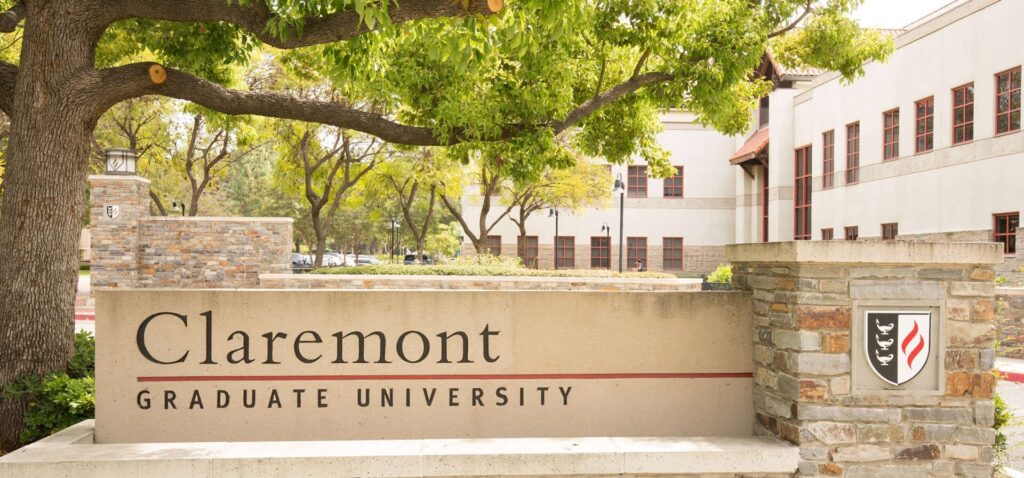Sharp clothes, smiling customers
On Debbie Hatfield-Jiminez’s first day as a dry cleaner, she quit after 2 hours.
It was September of 1974 and brutally hot when Ms. Hatfield-Jiminez, then 21, clocked in at the Ontario dry cleaners where her mother worked as a presser. She toiled a while, wilting, but when she burned her hand, she threw in the towel.
“My mom got so mad at me. She said, ‘You need to get back in there,’” she recalled. “And I haven’t done anything else since.”
In 1990, Ms. Hatfield-Jiminez purchased Rocky’s Laundry & Cleaners in the Claremont Village. Twenty-three years later, business is thriving, thanks to a great location—which includes proximity to laundry-challenged college students—as well as top-notch service.
Scot Curry, who has been coming to Rocky’s for 12 years, drives out from Newport Beach every 2 week to get his clothes cleaned and pressed by people he trusts.
“I’m loyal,” he said. “They don’t break anything, they don’t ruin my shirts—they do it right.”
When regulars come in, Ms. Hatfield-Jiminez and her son, co-owner Jeff Hatfield, know their names and their preferences.
“People can just drop their clothes off. We know what they want, how much starch they like in their shirts,” Ms. Hatfield-Jiminez said.
It’s the little touches that endear a mom-and-pop business to customers. When someone comes in, bleary-eyed, saying they just got up and haven’t had their coffee yet, Mr. Hatfield directs them across the street to his favorite coffee joint, the Last Drop Café. He tells them to order a cup of joe, putting it on his tab.
“They’re so sweet,” said Pomona College art professor Sandeep Mukherjee, a longtime customer. “Plus, I travel a lot, so I drop off big bunches of clothes, and they always get them done on time.”
Getting clothes done requires many steps and a meticulous attention to detail.
When a machine washable item comes in, Ms. Hatfield-Jiminez or Mr. Hatfield undoes the buttons and checks the pockets for mischief-makers like ChapStick, lipstick or ink pen. They then tag the clothing and inspect it for spots. A dress shirt with “ring around the collar,” for instance, is pretreated with a specialized cleaning agent, and then scrubbed with a tongue depressor-sized “bone,” so-called because the tool used to be made from elephant tusk.
The item is then sorted, laundered with garments of similar hue and hung in preparation for pressing. If any spots remain, it is rewashed. If a button is missing or there is a tear, even if it was incurred on the customer’s watch, Ms. Hatfield-Jiminez mends it. It’s about keeping the customer happy.
“They may not notice if you sew on a button, but they will sure as heck notice if a button is missing,” she said.
On summer days, even with the shop’s swamp coolers going full-blast, Rocky’s can hit 100 degrees. That’s nothing compared to the temperature in the pressing area, where clothes are smoothed via a steam presser dating back from to the 1950s.
Ms. Hatfield-Jiminez once read that pressing is the second hottest job after roofing. Her 83-year-old mother Doris, however, who comes in a few times a week to help out, isn’t daunted. After all, she first began work as a presser in Oklahoma at 13, leaving school days behind to help support her family.
“She remembers working at a laundry, folding clothes, when she heard FDR died,” Ms. Hatfield-Jiminez shared.
At 16, Mr. Hatfield wasn’t much older when he got started.
“Between my mom, Jeff and me, we probably have 100 years of experience,” Ms. Hatfield-Jiminez said.
After all those years, you might think the work would get tedious. The truth is, however, that Ms. Hatfield-Jiminez loves what she does.
“We all need money, we all have bills, but it’s not about the money,” she emphasized. “We love the people.”
It also helps that the family truly enjoys one another’s company. Each is quick with a joke, and there is no end to the stories to be told.
Once, when Mr. Hatfield first began working at Rocky’s, a leak developed and soon the entire shop was awash with water. It was even spilling out the door. He was wondering what to do when an older man came in, reached behind the counter and flipped a switch, stopping the deluge. A washing machine hose had sprung a leak, the man explained to a relieved but slightly flabbergasted Mr. Hatfield.
It turns out that the Good Samaritan with inexplicable knowledge about the place was Rocky himself, the original owner who first opened up shop in the early 1950s. He had just happened to be walking by when he saw water flowing under the door.
Every item a customer brings in tells a story.
Last week, a young man came in with a swollen lip and a rented tux covered in blood—apparently he’d gotten into a fight during a big night out. Blood, you can deal with, Ms. Hatfield-Jiminez said. She can’t say the same for engine exhaust, something she learned 30 years ago when she agreed to wash a dragster’s parachute. By the time she returned the parachute to its owner, the whole place smelled like rubber dust, oil and burnt fuel.
Pockets have held jewelry, hotel room keys, false teeth and even a glass eye. Once, Ms. Hatfield-Jiminez found black tar heroin sewn into the sleeve of a dress shirt. Another time, she accidentally laundered a large bag of marijuana a customer had left in his suit pocket. There was also the time Ms. Hatfield-Jiminez found $3,800 tucked in a hidden pocket in a minister’s robe.
Some of the Hatfields’ favorite tales involve the unfolding of lives they glimpse via their college-aged customers. Each year, they serve dozens of students looking for dry-cleaning, fluff-and-fold laundry service and a place to store their wardrobe during summer vacation. They come in as freshmen, often having never done laundry, Mr. Hatfield said.
“Pretty soon, the freshmen turn into seniors and they’re looking for jobs. They come in with their suits,” he said. “The next thing you know, they come in and say, ‘I wanted to thank you. I got a job in New York.’”
“You get to know them pretty well over the years and you think, wow, I’m probably never going to see them again. And then a new freshman comes in and it starts all over.”
—Sarah Torribio
storribio@claremont-courier.com










0 Comments